Thunderbird's future: Web App, or LibreOffice?
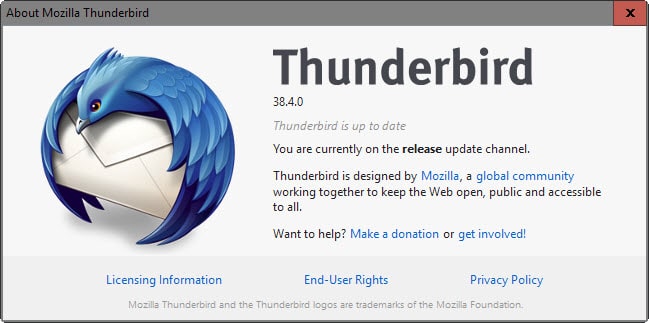
Mozilla announced last month that it wants to get rid of Thunderbird, the desktop email client that shares code with Firefox.
The details were a bit sketchy at the time, but the gist was that Mozilla wants to take away the burden from its engineers and free Thunderbird engineers from having to spent time adjusting the email client based on changes made to Firefox's core.
Mozilla wants to make sure that a standalone Thunderbird project is off to a good start, and to ensure that, it plans to provide financial support among other things.
While it is possible for the Thunderbird project to stand on its own feet, another possibility discussed was to make it part of an organization that would provide the Thunderbird development team with the required infrastructure as well as legal and financial backing.
Decisions have not been made yet, but it appears that the Document Foundation, maintainers of the popular Office client LibreOffice, are a candidate.
A wiki page on the official Document Foundation website entitled "Ideas for the integration of Thunderbird with LibreOffice" lists options, ideas and directions for a potential integration of Thunderbird with LibreOffice.
The LibreOffice team discussed options for integration a personal information manager in the Office suite, and options included transferring Thunderbird to "The Document Foundation" or to fork Thunderbird and integrate the fork into LibreOffice.
Two main implementation options exist if the decision is made to move Thunderbird under the umbrella of the Document Foundation:
- Make Thunderbird a program that is part of LibreOffice and ship it directly with the Office suite.
- Maintain a standalone version of the Thunderbird email client.
These options are not exclusive, and one possible outcome could be that both will happen. It is likely that part of Thunderbird's userbase would migrate away from the client if Thunderbird would only be offered as part of LibreOffice and not as a standalone client as it is right now.
There are other possibilities, and one of them that is discussed openly right now is to turn Thunderbird into a Web App.
tl;dr Thunderbird over the next 3 years needs to convert to being a web
app that can run on any browser that supports ES6 Javascript and HTML5.
(web app does not imply cloud-based, only that the underlying platform
is js/html).
Two reasons are provided to go down the route. First, that there is no guarantee that the Mozilla platform will remain a general-purpose development environment to run non-browser software, and second, that Internet users are using a variety of platforms and that Thunderbird somehow has to account for that.
The Web App approach would certainly require more time and might not only affect functionality but will impact extensions and customization as well among other things. Then there is migration that needs to be taken care of.
Now You: Where do you see Thunderbird's future?



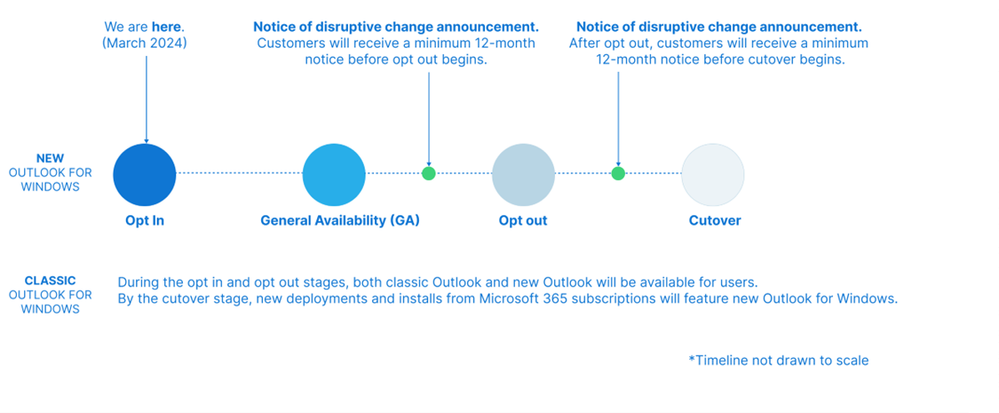




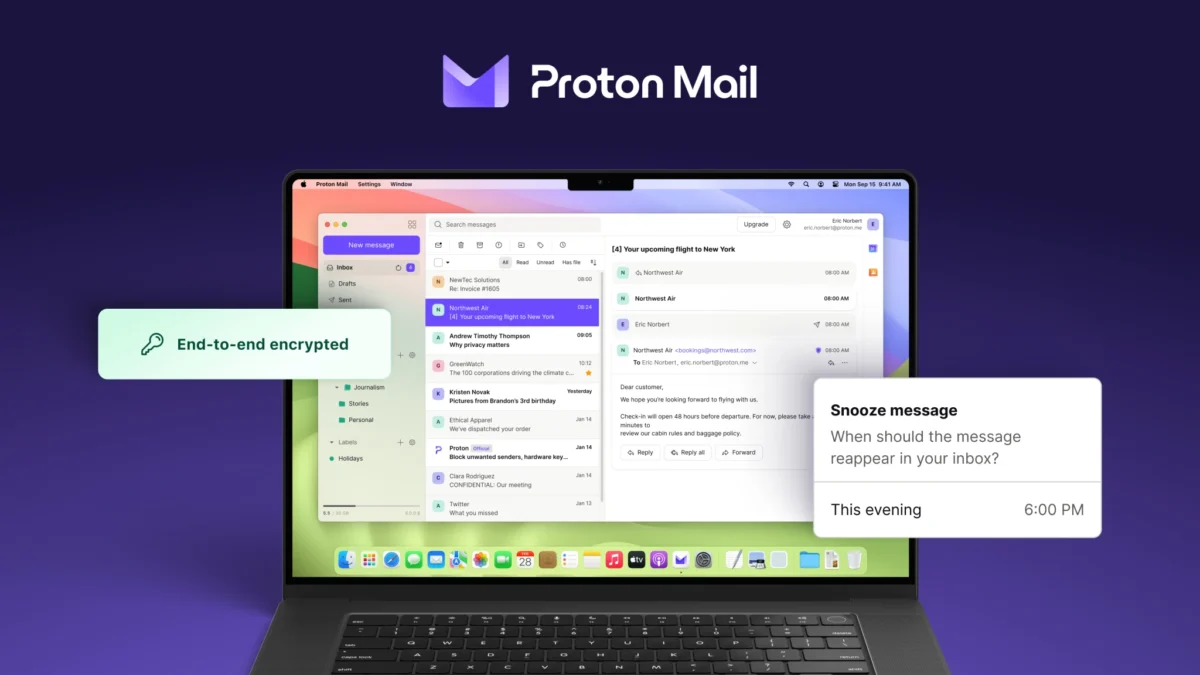
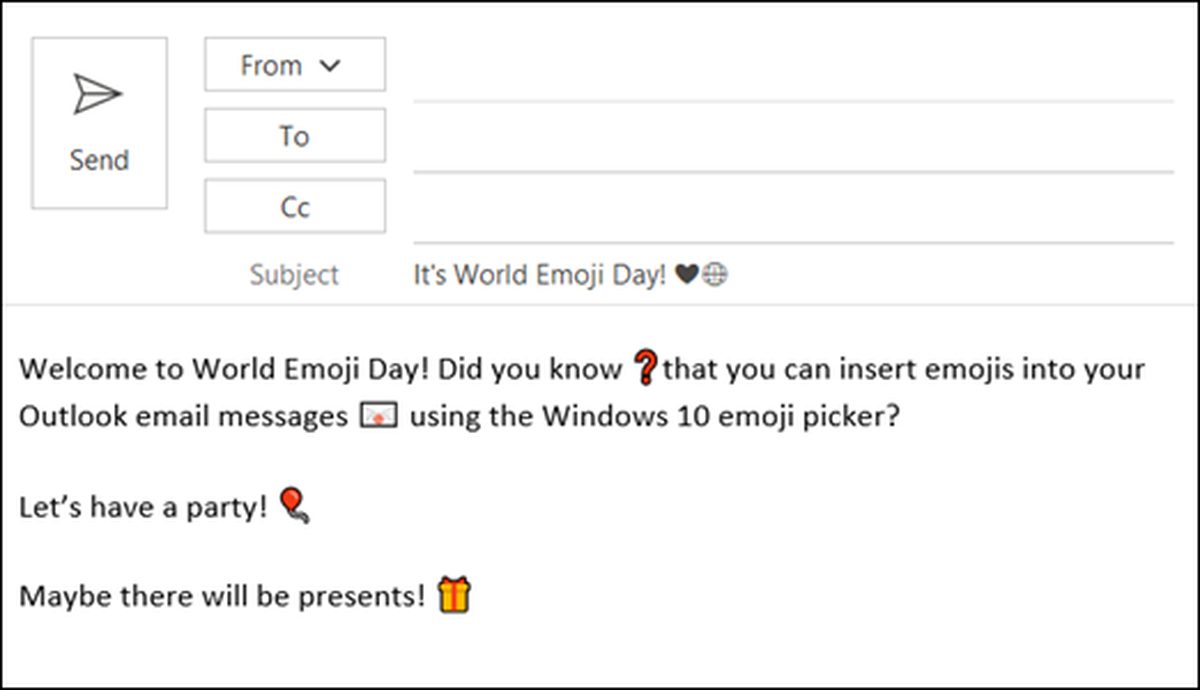
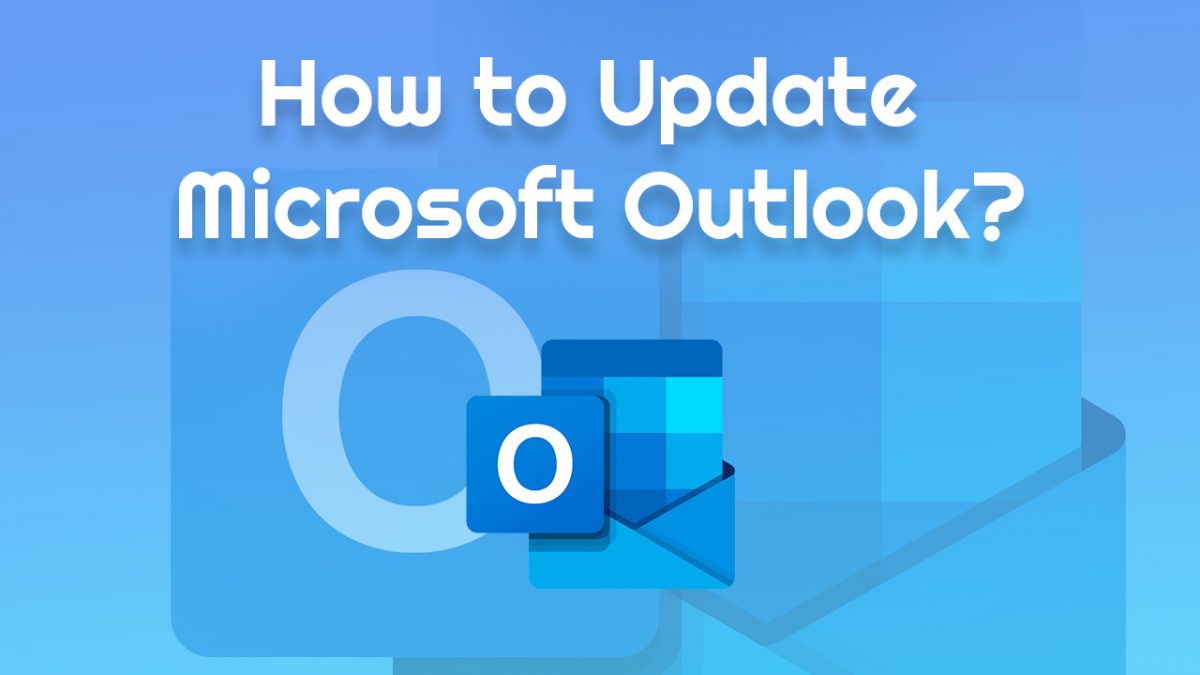

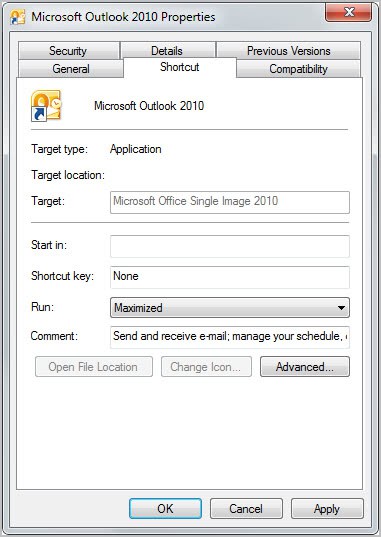










Great Comments.
Has anyone tried the Zimbra Desktop Client for e-mail?
It is free and seems well supported.
I have tried it with a number of mail accounts configured and not had any issues.
Seems to work well here but to be honest, I use TB for nearly all my mail.
I am thinking to use the Zimbra client if TB goes away.
Cheers.
Most replies here are confused by “Web App”. The Thunderbird people are thinking of moving to JS and HTML5, like what’s happening with Firefox. Email storage can still be local. It could be a Firefox extension, or use Firefox modules, or be a backend service that uses a web browser as its UI. Read some of the discussion in the link Martin provided.
From what I read, no matter which direction they go, it sounds like a lot of work to keep Thunderbird viable for the long term.
“It sounds like a lot of work to keep Thunderbird viable for the long term.”
Because they are not interested on maintaining it, it is as simple as that, does anybody here thinks that moving the interface to some JS/HTML5 implementation is a trivial amount of work or a simple task?
Also id they were to turn it into some Firefox module/addon how long until Mozilla decides they can not maintain it anymore because they can not laser focus on their latest fad?
If that was to happen TB would be left severely half-backed with most of the functionality we enjoy today missing for years.
The whole JS/HTML5 idea is a fart from someone who loves the smell of their own BO.
IMHO the best for Thunderbird would be to land as part of LO while being available both as part of a bundle and separate (technically not a problem at all, you can already install the bits of LO you want and not deploy the others)
If TB ends being handled by LO they will concentrate on what TB needs which is to be a great email client, not some kind of enthusiastic consumer of Mozilla’s latest derangements that have nothing to do with what their users need.
I first switched to Thunderbird when Outlook 2003 went unsupported and now while I could use Outlook 2016 (I have Office 365) I still prefer to use Thunderbird. I would hope its future is not just as an integrated piece of LibreOffice and I doubt that will actually be the case. Its got a pretty substantial user base and will I think survive as a stand alone product on its own. Personally speaking it does all I need of an email client already so other than for security and bug fixes can’t see it needing much tweaking going forward. I also like the ease with which I can backup all my emails and settings via Mozbackup.
Nooooo. Give it to the GNU, not The Document Foundation.
The thing is, Thunderbird is the best email client there is. LibreOffice is not the best office suite there is. Many people will want Thunderbird and not LibreOffice. The two should remain separate
While I’ve mostly switched away from Mozilla because Chrome is always so much faster, I will never give up Thunderbird.
I’ve used Thunderbird ever since it was released. I keep a very large amount of email in Thunderbird (every email sent or received since 01/01/1997) and while its not perfect it works quite reliably. I hate Outlook. And for the record, making Thunderbird a web app is a terrible idea. I often go to client sites where I cannot get onto the net, but my trusty Thunderbird works fine in offline mode on my laptop. While I’ve often wished that Mozilla would give Thunderbird more love – I prefer benign neglect to a third party ruining things by attempting to reshape the application to match their own agenda. If this is really about the money – why don’t we create a kickstarter project and fund this so that Thunderbird continues to be a reasonable alternative to Microsoft/Apple and Google.
I think TB makes the most sense as a standalone package with the ability to integrate into LO. Email integration is big in enterprises and LO, AOO in particular lack an integrated email client. Also, the Document Foundation has similar goals to Mozilla and Apache for TB to find a new home there would not be major hassle.
I would not use a web app.
Thank you but no to a web app and no to LibreOffice integration.
Mozilla give me a separate donate button for your different projects please then you would be able to see how much love there is out there for Thunderbird.
I started with Tbird about the time I started with Firefox. Somewhere around 1.5 or so. I refuse to use the web based interfaces of email providers. “Web apps” are not “web based”.
I have made the attempt to learn a little javascript. I need to preface this by saying I am not a coder. I dabble. I’ve learned over the years to write html and css. I’ve played with most of the Yeoman generators at one point or another. I have built a few of those small apps myself just to try and learn how it’s done. NPM, Bower, and node.js use is common to me of late. Electron fully has my attention at the moment. I have a little app I have been figuring out how to wire up based on electron that one day might actually connect to the internet and be an email app. An email web app that is. Though every bit of that app is run off the desktop. And with electron it’s cross-platform. The lack of an existing email client I can tolerate besides Tbird and the apparent upcoming death of Tbird by Mozilla is what drove me to attempt this.
My favorite editor is Atom which is built on electron. I spend lot’s of hours in that app. Atom also is a web app.
There is an existing email web app built off electron and Atom itself. Nylas or it’s base app N1. A few rounds on Github or browsing the NPM repos is educational. Web apps I suspect are the future. There are a multitude of reasons for that which I will not get into here. Understanding tends to stop fear.
Turn Tbird into a web app? By all means. You won’t need to be a C.S. major to hack it to your liking. A little CSS and you can make it look and function like you want. Addons will in effect be plug-ins and much, much simpler to write. Those are just the basal user end reasons. From the coders standpoint it makes the code much easier to maintain. Future proof.
Installed Fossamail a few weeks ago, as an alternative for TB. Must say: i am more than happy with the result. The software appears to work a bit leaner than TB; and all the add-ons function perfectly. Feels like having TB upgraded ;-)
Could LibreOffice and Thunderbird work similar to how Softmaker has integrated Thunderbird?
http://www.softmaker.com/en/softmaker-office-windows-thunderbird
I use the PortableApps.com version of Thunderbird on a usb drive, I hope that it remains a desktop client (not integrated with Libre office) that can be converted into a portable format, so that I can continue to use it as is. I have mine configured for G-mail, multiple accounts and its easier for me than to log into web mail via my browser.
I don’t use Thunderbird myself, but I think it would be cool if TDF took Thunderbird under its wing as it would bring them closer to feature parity with Microsoft Office. I don’t know if I’d want it part of the default LibreOffice installation, though. If it’s an optional component or stand-alone, that would be best.
I prefer to view Gmail in a browser tab. I get email faster and can use various bookmarklets on it.
I remember years ago our elderly landlady wouldn’t let me dump an old wood stove in the cellar; she had survived WWII and knew how important it was to survival to be able to burn something and keep warm. I keep a landline telephone and don’t depend on mobile services that can’t even handle New Year’s Eve traffic. I have computers that can run on batteries, but more importantly, a short-wave radio that runs on 3 volts I could generate with a few lemons and some bits off my roof.
So as you might guess, I want a full-fat offline email client that stores stuff where I can find it, in a format I can access, not just now, but in 100 years time as well, with no external dependencies for processing stored content.
I like your story, John, I like that argument.
We very seldom have power cuts here but last time it happened I got to realize to what point communication was tied to power. Very seldom as well an Internet connection cut, but last time it happened (with power otherwise on) led me to no Internet, no phone, no TV since I have a “box” here which handles all three and otherwise an old mobile phone and no Wi-fi since my PC is ethernet only.
I definitely should start wondering on alternatives for power supply as well as for phone/wi-fi connections.
Thunderbird as a web-app? That’s not funny, I’m not laughing … really. Haha
This is probably the most stupid idea I’ve hear in all that drama over the future of this mail client. There aren’t that many of the “old warhorses” left, if I may call them by that name. Many decent eMail clients have stopped development or distribution altogether over the course of time, what’s left is a small core of commercial alternatives like Outlook or The Bat, that have for a long time stood in direct competition to the Mozilla open source solution. It has always been about providing a way to access mail servers from a desktop application and that included the option to store all your mail too. If that were to suddenly disappear, Thunderbird shouldn’t be called thunderbird anymore – I’d rather see a new and inventive web-app which I would never be tempted to use, than misuse the traditional name in that way.
Granted, developing and maintaining a web-app would be a lot easier, because people have learned how a browser works across platforms and it is much simpler to develop in HTML/CSS/JS instead of C++.
The main problem I see however is one of privacy with this proposed web-app deal. In the past few years I have read more and more people praise web-apps like Google Mail and that has gone so far, that those people have started to add their other personal mail accounts to be managed by Google. You can imagine how much of a privacy invasion that would be, since Google (and anyone capable of requesting their data) would in one fell swoop have an almost total user profile of you, real name and any other personally identifying data included. While I am not paranoid enough to stop using free eMail services like Google altogether, it does make me quite uncomfortable to use them for more than my regular anonymous web-accounts; I’d never donate my personal data freely in such a way, even if the benefits – a web-app which could work with separate mail accounts – sounded advantageous or convenient. All of that would also be an issue with any Thunderbird implementation, because the app would need to be run on a central server which could manage the different pop/imap mail accounts. I would feel better about all that collected data in the hands of a non-profit organization which developed open-source software, but the fear for a lack of privacy remains.
I’ve been using Thunderbird for as long as I can remember. I moved from Outlook and still am happy with my long ago decision. If Thunderbird can’t find a new home, or doesn’t get open sourced, I’ll move to eM client. I switched a customer to eM Client from Outlook 2003 when moving their files to a new computer. EM Client imported Outlook’s .pst file perfectly on a new computer.
Thunderbird is already open source.
As for em Client, I agree it’s pretty nice but I moved away from it because it didn’t support PGP and has an unsecure implementation of s/mime(I don’t have the client in front of me right now, but it uses some pretty old signing algoritmh that have been successfully attacked) It also doesn’t have “conversation” style threading yet and they keep “fixing” gmail authentification and yet it keeps failing every few weeks. As such I moved to Postbox recently.(hopefully it will continue even after TB migration to a new home) I know the upcoming Em Client 7 will fix some of those, but they don’t seem interested in PGP or updating their s/mime implementation.
Web apps are a no-go thing for me.
I live in a tiny village, stuck with a slow and weak Internet connection. Luckily no dial-up anymore, but still it comes to us over 60-year-old telephone lines, and occasionally the whole thing simply goes down for an hour or so. Because of this, and a few other reasons, I want to minimize Internet traffic and to keep all applications locally on my own PC, where they remain usable (to some extent) when there’s no working connection.
This goes for Thunderbird, too: even when the Internet is down, I still want to able to read and organize old emails, draft new ones, update my calendar, etc.
People who strive to make everything web-based simply have no idea what problems this would cause for a large group of users who happen to live outside the urban areas, with no fast Internet. Nor do these clueless developers seem to realize that such users will remain a factor for a long time yet. Because in many rural areas, laying out a fast glass fibre Internet network is economically impossible: it would bring far too high costs per individual user. So these users will still not be able (for example) to watch live TV or long streaming videos over the network. At least not very soon.
In the Netherlands, where I live, out of 7,7 million households currently 0,5 million (that is about 7% of all users) still are stuck with such slow, unreliable connections. In many other countries all over the world, the situation is even much worse. When will these urban-focused “everything over the network” advocates become aware that not all internet users live in a city?
OK, this was my personal rant. For the rest I fully agree with Tom Hawack’s comment. I’m also considering a switch to Fossamail.
BTW, I do hope that the Pale Moon developers will consider a change of name for their Thunderbird clone. The name “Fossamail” gives a rather unfortunate association with “Fossil mail”. Maybe they would become more popular if they would simply call it “Pale Mail” or something like that!
Even with a fast Internet Connection there is an argument to prefer having one’s data “here”, locally on his computer.
Everything has a price. Accessing one’s emails on a Webmail server makes sense with the IMAP scheme keeping the mail on the server and the possibility for the user to access it from anywhere. The price is that of Cloud held data : where on earth are my confidential items held ? I’m not sure the price is fair, I mean not sure the availability to access my data is worth the price of privacy potential issues.
I happen to be of those who aim to keep what they can on their “physical” home, local device, aware that tt requires more than ever backups, backups and backups again… but not on the Cloud! Make it on another device or, if on the Cloud (“somewhere, over the rainbow, bluebirds sing…” and data may whisper) then seriously encrypted.
I may be old fashioned, narrow-minded, but that’s how I consider at this time my data security.
By the way : hello Netherlands! I love the country, for many off-topic reasons :)
Dropping one product to free up people and resources to work on another product is what you do when you don’t have enough people to work on both products.
I don’t see any real benefit to users from converting TB from a standalone client into a non-cloud-oriented web-thing that runs inside a browser. Plus, if Mozilla lacks resources to work on TB now, what’s the benefit to them, or TB’s new parents? Where are they going to get the resources needed to cajole that web-thing into working on Edge, Chrome, Chromium, Opera, etc., as well as Firefox.
Interesting that just recently Mozilla’s data shows TB use is on the rise, as you reported two days ago (Thanks!).
I’ve been using TB since day one, and several years ago settled on Haller’s PortableApps version running in a TruCrypt (now VeraCrypt) container.
All I use it for is POP3 (I don’t need IMAP) to one secure ISP account for banking and commerce so I don’t care about all the fancy-schmancy Firefox “features.” Support is just a phone call away to people I pay. Anyone depending on a Web App for their profession knows what their work is worth: 404. I use gmail and yahoo for the other things that don’t matter.
One issue is I’m locked into the XNote++ extension; I have 100’s of emails noted. To the best of my knowledge, no one, no where, no how has a method to “scribble” or post notes on an email – like people used to be able ti do when it was on paper.
So once Mozilla decides to throw it overboard and I don’t like where it ends up floating, Haller’s final release will be my client from thereon. Or whatever version that fails to run XNote.
If it ever stops working in Windows whatever, that’s when I’ll be forced to look for an alternative.
I’d buy TB if Mozilla moved to that model.
Forgot to mention: thx for mentioning Xnote.
Get FossaMail; a clone of TB only faster. On the web site you can also get a tool to migrate your mail & settings from TB to FM, very simple. I can really recommend it.
Thanks. But my dealings with Moonchild Productions a few years back were… this being a family friendly site, let’s say Less Than Positive. I don’t think Pale Moon is a very good product so couldn’t care less for FossaMail. And it’s not portable and speed was and is not an issue on my systems.
Recently, I’ve been considering using Thunderbird again but won’t even get started with it should I find out it is to become a web app. If it remains a standalone app, my interest continues.
Like so many others, I am bewildered by Mozilla’s wanderings. I prefer Thunderbird to other mail clients on my Mac and hope that Mozilla doesn’t discard it. It handles multiple IMAP accounts well, doesn’t consume too many resources, and offers multiple ways to look at mail. There are helpful extensions to remove duplicated messages and to provide other needed features. Apple’s Mail app wants me to do mail its way, in its preferred modes. Outlook for Mac takes a long time to load and Sync folders and then clutters up the UI in Microsoft’s unique way. I am one of the few that doesn’t like GMail’s interface on any type of system.
Webmail clients are making strides but I haven’t found one that does all of what a good standalone client will do.
I really hope it won’t become a web app, though integration with LibreOffice doesn’t sound too good either… I mentioned this in other comments, I don’t use Thunderbird anymore, and I am pretty happy with my current mailer but I was always hoping that Thunderbird will get the bug fixes it deserved. I think that this hope must come to an end.
What is your current mailer and what bugs need fixing?
I won’t run Thunderbird as a Web application. I wish to continue with an Email client, not webmail, except if the webmail site takes advantage, is so tightly integrated to its website for privacy concerns that it makes the point, such as ProtonMail.
If Thunderbird disappears or if it happens to hesitate, be tributary of everlasting negotiations while not being updated, I’ll switch to FossaMail, 64-BIT since we’re at it. I understand companies have policies, strategies, priorities, but users as well. When it’s over it’s over. I may even move to FossaMail in the coming days. I have the feeling Thunderbird is starting a long-term end-of-life odyssey and I have no intention to check the morning news day after day to know what it’s up to.
And I do hope Firefox itself won’t have to suffer the same scheme, be it for different users, i.e. the end of Mozilla. I like Firefox but Mozilla’s behavior is hard to understand, for me anyway. There’s not one day I don’t take into consideration other browsers, an alternative. Life is movement, the best is dynamic, nothing is eternal.
Replying here to your earlier reply (below) saying that Alex said on 1st Dec that “Fossamail doesn’t support gmail 2 factor login”. This is complete wrong: FossaMail has picked my Gmail messages. The thing is that 2-factor login Google requires you to get a different password for each app that wants to access your Gmail account. Those special passwords are generated by Google, and you can do it via the settings.
I believe the 2 factor login being referred to is Thunderbird’s OAuth2 support that they added in 38.0.1 (https://www.ghacks.net/2015/06/12/thunderbird-38-0-1-is-a-massive-update-for-the-email-client/). This works with gmail accounts that have 2 factor enabled, without requiring you to generate a separate application password.
Thanks for the info, Angry Thinker
I mentioned Alex’s post because I myself had evoked FossaMail and wished to include that further information, I granted for true, quoting it because, being neither a FossaMail user nor having a Gmail account I had simply that information in mind.
Good you corrected.
Thanks Tom for mentioning FossaMail. Now I don’t have to give up my beloved Thunderbird, except with FM I have a 64-bit version & don’t have to worry about its future. Installed FM yesterday, and the Tbird migration tool made it sooooo easy :-)
Great if you’re pleased with FossaMail, but I have to quote a comment from ‘Alex December 1, 2015 at 10:48 pm’ at https://www.ghacks.net/2015/12/01/mozilla-wants-to-drop-thunderbird-completely/ who stated :
“Fossamail doesn’t support gmail 2 factor login, and it seems like the Developer in charge is not interested in implementing it as it conflicts with his idea of how email should work.”
So, for whom is concerned, be aware of that.
ditto
Wait, you just gave me an idea: ***Why not let the Protonmail team take over Thunderbird development?*** That would give Thunderbird a good home, and would also solve Protonmail’s one big remaining security problem, i.e. the need to authenticate sessions via the cloud. I have long believed that this problem would eventually force Protonmail to create their own desktop client, so that the mailbox encryption key could be authenticated locally rather than via interaction with their website. Why not just take over the project and integrate it with the Protonmail service?
That actually sounds more awesome the more I think about it.
Jason … Finally, I am in total agreement with you.
Problem is, most great ideas (like yours here) don’t come from inside the company. It’s those tens of thousands of users that have day-to-day experiences that come up with the best modification….which after all, is the primary purpose behind open-source.
That would indeed conciliate the best of two worlds. Sounds more than interesting.
I still don’t understand the real reason why they want to drop thunderbird, because thunderbird is an already well done program so it just need small security patches, well I think it would be better for both thunderbird and firefox maybe if the document foundation takes control of thunderbird it would gain the attention it never got because of firefox. On becoming a webapp, I don’t think it would be a good choice because gmail and outlook.com have a duopoly and that fact may lead thunderbird into oblivion, the very same way kompozer did, but it would be interesting to see if thunderbird can stand on its own.
“I still don’t understand the real reason why they want to drop thunderbird”
Because you really can’t monetize an email program like you can a web browser
Simple. Mozilla wants to get rid of everything which can be customized and enhanced. Mozilla wants to create today minimalist featureless software which only recognizing symbol will be the UI design – like Google does with Chrome, that is Mozilla’s master-plan to survive.
Everything which can be enhanced beyond Mozillas control will be eliminated (UI customization, complex add-ons, full themes) or cast out.